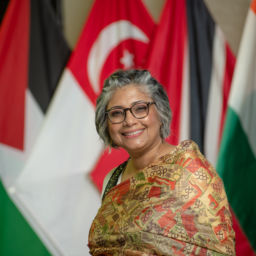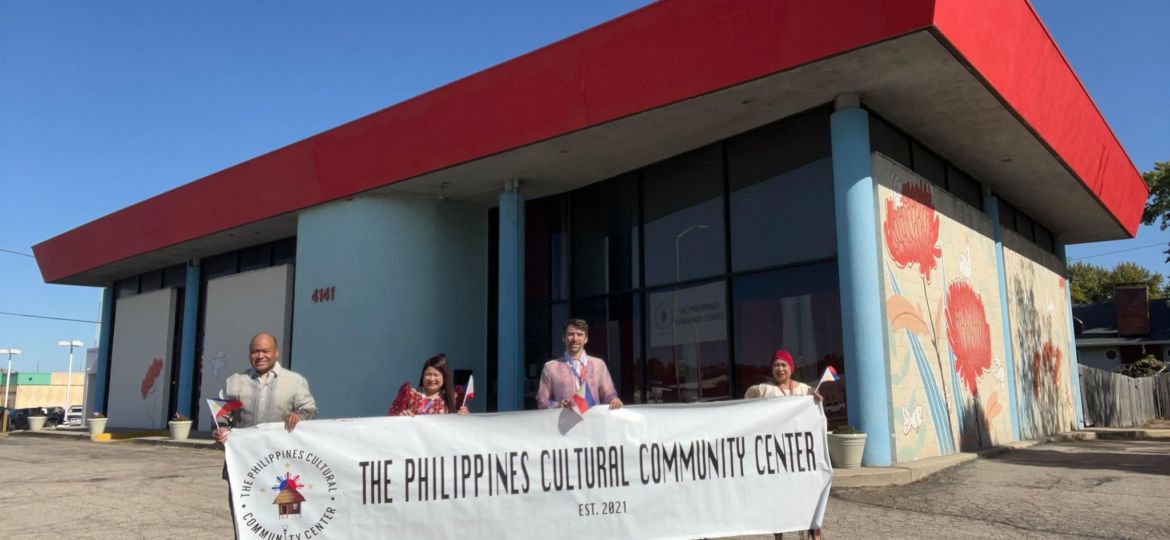
As a child, when her eyes opened and her peripheral sight became fixed, Liz Prevot awoke within the confines of warm ivory skin framed by thin obsidian locks. Each morning, the mirror would reflect every characteristic of a Filipino. She knew she had been adopted as a baby, and coincidentally, her adoptive mother was Filipino, too.
That didn’t mean much when her adopted mother chose to abandon Prevot as an 8-year-old.
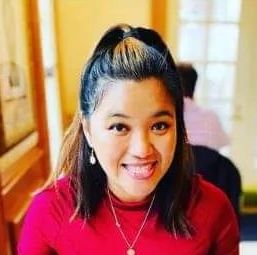
Growing up in poverty on the eastside of Indianapolis, grappling with simple means, and trying to survive the day-to-day was typical for Prevot. Struggling and surrounded by others without privilege, Prevot didn’t necessarily feel isolation from radical differences like some Asians who may have grown up in affluence. Rather, piercing waves of shame and anger towards her mother flowed through her.
“I didn’t feel disconnected from my culture,” Prevot said. “I felt the trauma from the abandonment.”
One positive that may have come from her mother’s decision was the opportunity for Prevot and her adoptive father, Kevin Carver, to form the long-held bond that they still share today. Carver eventually learned how to raise Prevot as a single father, she said, but because he was not Filipino, he never knew how to teach her about Filipino culture.
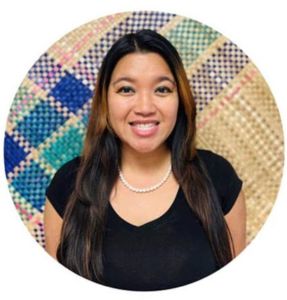
Being one of the only Asians in her childhood circle, Prevot’s adoptive mother would’ve been the person truly able to guide and give her insight into Filipino heritage; the only one able to provide Prevot with a tangible depiction of who a Filipino woman was, and all the things they are capable of.
“Growing up, I didn’t have the media showing Asian women, which just compounded my anger towards my mother,” Prevot said. “So I thought, ‘I’m not going to get into Asian culture because my mother left me,’ but, in the end, that didn’t serve me.”
That realization didn’t come until 30 years later when Prevot decided to give therapy a chance. Not knowing how well it would serve her at the time, Prevot eventually decided that she wanted to learn more about her culture — she needed to — not only for herself, but for the broken little girl her mother left behind.
“With my mother being out of the picture, I had to give myself my own permission to learn about my own culture, because no one’s going to teach it,” Prevot said.
The year 2016 was not only the year Prevot decided to start therapy, but it was a year of chaos in the United States. Prevot noted that the 2016 presidential election and the surrounding discord was almost too much for her. She was at a tipping point — all the divisiveness began to well up inside of her — and she was about to plummet.
The years that followed were when Prevot really began to put her thoughts into action. She decided to complement her day job as an accountant with something more meaningful; she began to fight for social and racial reformation.
“I am one of those social activist, warrior-type people,” Prevot said.
Prevot’s close friend and fellow adoptee, Philip Smith, who she refers to as “The Godfather ” of Indy’s Asian community, established The Philippines Cultural Community Center in 2020 during COVID-19. The center was birthed in a very small capacity, but Prevot has been able to help Smith expand the establishment to what it is today, and she has become the center’s new Executive Director.
Originally, the center was designed to educate and serve Asians in the community who felt a cultural disconnect with their lineage, but in her new role, Prevot has pivoted the center’s mission to something more inclusive for all.
Prevot is aware of some others’ beliefs about Asians, saying that she knows many have preconceived notions that Asians are racist. Prevot wants the center to be a safe haven for everyone, not just a place pigeonholing Filipinos to Filipino culture.
“In order to start taking this division down, we have to start working with other cultures,” Prevot said. “We need to show that Filipino culture works with the Hispanic culture, the Latinx culture, the Black culture … we are going to slowly build that up.”
“I am one of those social activist, warrior-type people.”
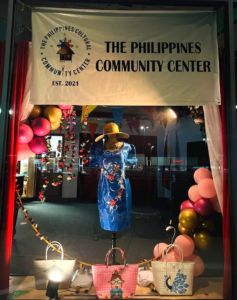
Since May is Asian American Pacific Islander Month, the center has dedicated every weekend in May to Asian and Pacific Islander culture. The center will have its own bazaar featuring a farmer’s market committed to promoting Asian heritage through Asian vendors, and after May, the center plans to open up the bazaar to vendors of any culture — keeping Prevot’s promise of inclusion intact.
While May is a perfect time to celebrate Asian and Pacific Islander culture, it’s also a time to promote awareness of some of the more difficult aspects of life that many Asians go through, such as the #StopAsianHate campaign.
While Prevot is all for protesting, she admits that she’s been burned out, and believes there is a stronger, more effective way to bring people together without any barriers. That is why on June 26, the center will host its very first AAPI Inaugural Pride Ball, a red carpet gala aimed to bring people together through community, culture, and food.
“I get the rage, I’m all about the rage, specifically female rage — I know why we’re mad,” Prevot said. “But that is not going to bridge us together, so this is more of a festival with a sense of community.”
The pride event will be hosted at VisionLoft and will take place from 5-11 p.m. Guests can strut down the red carpet and are encouraged to channel their inner celebrity for the night. There will be a variety of Asian vendors present, and there will be a dance floor where the excitement can continue. Throughout the night, there will be performances by Japanese drummers, Filipino dancers, and even a Chinese dragon.
When Prevot was young, the film “The Joy Luck Club” premiered. At the time, it was one of the only productions featuring an all-Asian cast, and the only film she could identify with until “Crazy Rich Asians” made its debut in 2018.
“‘Crazy Rich Asians’ is not … the plot is not deep,” Prevot said. “But when I saw it, I cried. It’s so important to have a full cast of Asian representation, just like it’s important to have a full Black cast, an all-Mexican cast — all of that is so important.”
Prevot is hoping that the pride event exhibits the same type of love and representation of Asian heritage that “Crazy Rich Asians” so successfully accomplished and showcased to the world.
The pride event will be the center’s first large project since its launch, but Prevot and her team are not done there; an entire summer itinerary is lined up. A female empowerment event is underway for July, and a commercial kitchen for cooking classes for Filipino food, or any ethnic cuisine, is in the works as well.
These may sound like small steps, but being a firm believer in the little things, Prevot is confident that the small will add up, and she’s going to keep working until everyone in Indianapolis knows what the center is and what it stands for. She’s aiming to build a community for all and wants everyone to know: No matter who you are, The Philippines Cultural Community Center wants to welcome you.
If you would like to get involved with The Philippines Cultural Community Center, consider donating or volunteering.
The main image in this story features (left to right): Philip Smith (co-founder), Cristina Miranda (cultural director), Douglas Swain (chief administrator), and Marife Callender (co-founder).
Mina Denny is Indy Maven’s editorial intern. You can connect with her on Instagram, Twitter, and on LinkedIn.
All of our content—including this article—is completely free. However, we’d love it if you would please consider supporting our journalism with an Indy Maven membership.




